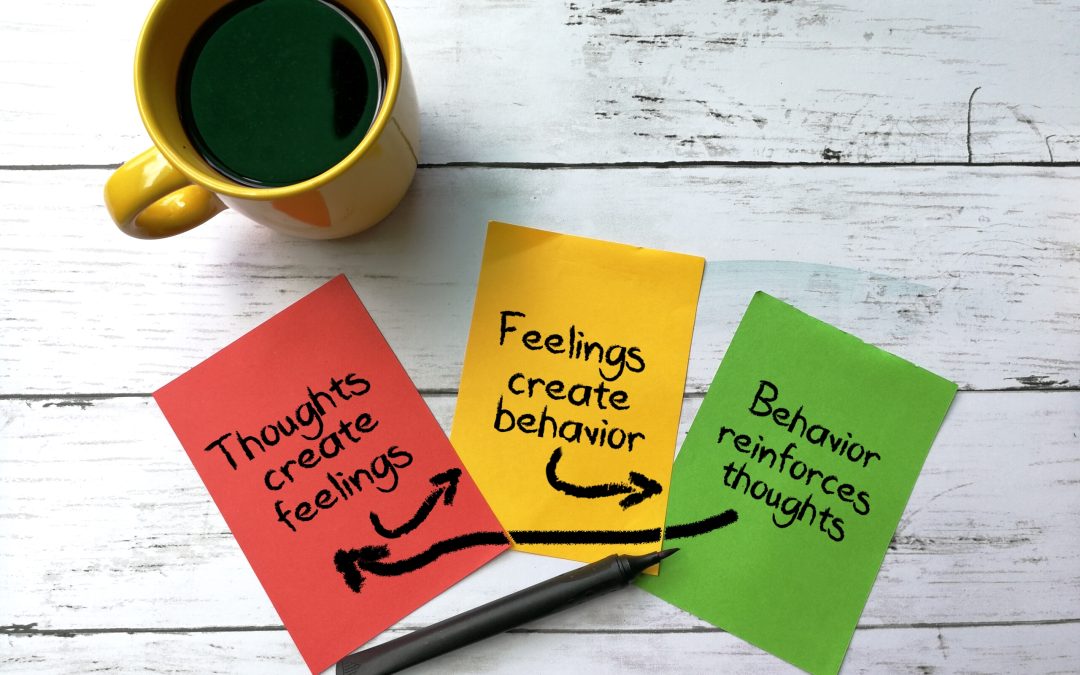Are you ready to unlock the key to a happier, healthier version of yourself? Look no further than Cognitive Behavioural Therapy (CBT) – a powerful tool that can revolutionise your life. Whether you’re struggling with anxiety, depression, or wanting to break free from negative thought patterns, CBT is here to transform your journey towards personal growth and well-being. In this blog post, we will delve into the life-changing benefits of CBT and how it can help you rewrite your story for the better!
Introduction to Cognitive Behavioural Therapy (CBT)
Cognitive Behavioural Therapy, or CBT, is a type of psychotherapy that helps people to change the way they think and feel about themselves, the world around them, and other people in it.
CBT can be used to treat a wide range of mental health problems, such as depression, anxiety, post-traumatic stress disorder (PTSD), phobias, Obsessive Compulsive Disorder (OCD), and eating disorders. It can also be used to help people manage chronic pain, sleep problems, and relationship difficulties.
CBT is based on the idea that our thoughts, feelings, and behaviours are all interconnected. That means that changing the way we think about something can lead to changes in how we feel and behave.
CBT usually involves meeting with a therapist for weekly sessions. During these sessions, you will learn about how CBT works and what you can do to change your thoughts and behaviours. You will also be given homework assignments to practice what you have learned in between sessions.
The therapist will work with you to identify your specific goals for treatment and create a plan to help you reach those goals.
What are the Benefits of CBT?
Cognitive behavioural therapy (CBT) is a type of psychotherapy that helps people change their negative thinking and behaviour patterns. CBT has been shown to be an effective treatment for a variety of mental health conditions, including depression, anxiety, post-traumatic stress disorder (PTSD), and eating disorders.
One of the major benefits of CBT is that it can help you identify and change your negative thoughts and behaviours. This can lead to improved moods, increased self-esteem, and better relationships. CBT can also help you learn new skills to manage stress and cope with difficult situations.
Another benefit of CBT is that it is usually a short-term treatment. Most people who undergo CBT experience significant improvements within 10 to 20 weeks.
If you are considering CBT for yourself or a loved one, talk to a mental health professional at NI Counselling about whether it is the right treatment option.
How Does CBT Work?
Cognitive behavioural therapy (CBT) is a type of psychotherapy that helps people change their negative thinking and behaviour patterns. CBT is based on the idea that our thoughts, feelings, and behaviours are all interconnected. By changing our thoughts and beliefs, we can change our behaviour and how we feel.
CBT is a short-term, goal-oriented therapy that usually lasts for 12-20 weeks. During CBT, you will work with your therapist to identify your negative thought patterns and replace them with more positive ones. You will also learn new skills to help you cope with stressful situations in a healthier way.
One of the most important aspects of CBT is homework assignments. These assignments are designed to help you practice the skills you’re learning in therapy so you can use them in your everyday life. Homework assignments may include things like keeping a thought journal, practicing relaxation techniques, or role-playing difficult situation
Examples of CBT Techniques
Cognitive behavioural therapy (CBT) is an incredibly effective form of therapy that can help you to change your thinking and improve your life. There are a number of different CBT techniques that you can use to help you to achieve your goals. Here are some examples of CBT techniques that you may find helpful:
1. Identifying and Challenging Negative Thoughts: One of the first steps in CBT is identifying the negative thoughts that are holding you back. Once you identify these thoughts, you can start to challenge them. For example, if you have the thought “I’m not good enough,” you can challenge it by asking yourself “What evidence do I have to support this thought?” This can help you to start to question your negative thoughts and eventually start to change them.
2. Goal Setting: Another important part of CBT is setting realistic goals for yourself. This can help you to focus on what you want to achieve and give you something to work towards. When setting goals, it’s important to make sure that they are specific, measurable, achievable, relevant, and time-bound (SMART).
3. Coping Strategies: Coping strategies are tools that you can use to deal with difficult situations or emotions. They can help you to better manage stress and anxiety. Some examples of coping strategies include relaxation techniques, problem-solving, and positive self-talk.
4. Exposure
Common Misconceptions About CBT
Cognitive behavioural therapy (CBT) has been shown to be effective in treating a variety of mental health conditions, including depression, anxiety, and eating disorders. CBT has also been found to be helpful in managing chronic pain, reducing stress, and improving sleep. Despite its proven benefits, there are still many misconceptions about CBT.
One common misconception is that CBT is only for people with serious mental health issues. While CBT can be an effective treatment for people with more severe mental illness, it can also be helpful for those who are dealing with less severe issues. In fact, CBT has been found to be an effective treatment for people who are experiencing mild to moderate depression and anxiety.
Another common misconception about CBT is that it is a “quick fix” solution. While CBT can provide relief from symptoms in a relatively short period of time, it is not a “quick fix” solution. For some people, the benefits of CBT may last long after they have completed treatment. For others, the benefits may diminish over time and require booster sessions or other types of maintenance treatments.
It is also important to understand that CBT is not a “one size fits all” approach to mental health. What works for one person may not work for another person. It is important to work with a therapist who specialises in CBT and who can customize the treatment plan to meet your individual
Conclusion
It’s clear to see that Cognitive Behavioural Therapy (CBT) can be a powerful tool in transforming our lives and unlocking a happier, healthier version of ourselves. The flexibility and versatility of CBT makes it useful for addressing almost any mental health issue. If you’re considering therapy but aren’t sure if CBT is right for you, it’s worth talking to NI Counselling about the possibilities. With dedicated practice and effort, CBT has the potential to change your life – so why not give it a try?
If you would like to book an appointment click here to go to the contact us page and fill out a referral form.
If you would like to know more about Choosing a Therapist contact us, click here to read more.
To keep up to date with all our news and updates here at NI Counselling, please be sure to follow us on our social media channels: Facebook & Instagram.

